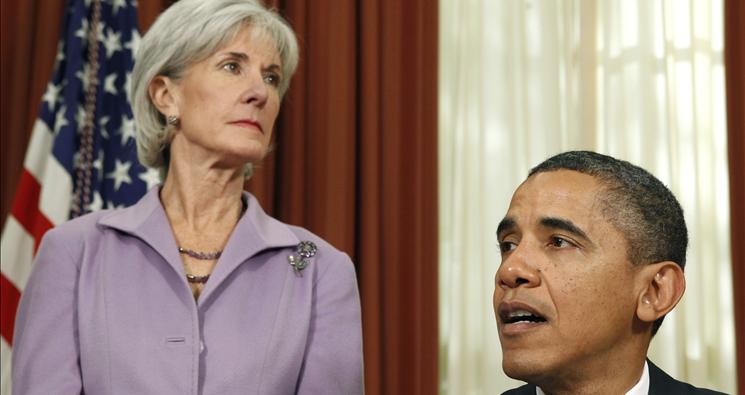Senate Set to Vote on Obama's Abortion Pill Mandate
Tomorrow, March 1, the United States Senate will vote on Senator Roy Blunt’s amendment to restore the conscience rights recently trampled underfoot by the Health and Human Services mandate, which forces religious and prolife institutions to provide insurance that covers abortion-inducing drugs. The vote comes two weeks after Senate Majority Leader Reid said he would allow a vote on the amendment before going back on his word and precluding the vote. Unless Reid has another parliamentary trick up his sleeve to delay the vote again, each and every U.S. Senator will have to go on the record tomorrow as for or against the liberty of conscience.
Senator Blunt’s amendment tracks the language of the Respect for Rights of Conscience Act (S. 1467, H.R. 1179) and provides comprehensive conscience protection for those who object, on moral or religious grounds, to abortion-inducing drugs, sterilization, and contraception. If made law, the amendment will reverse the mandate the administration is forcing upon thousands of religious hospitals, schools, and social service organizations.
It’s critical to note that Senator Blunt’s amendment will not just preserve and protect conscience rights that our country has cherished since the time of our founding; it will also ensure that religious institutions and charities can continue to provide important services for our local communities. As Cardinal Francis George of Chicago recently observed, “Unless the Obama administration’s mandate that all health insurers offer abortifacient drugs and sterilization is rescinded, Catholic hospitals and health care institutions in the United States will be gone in a couple years.”
If the administration and its allies are truly committed to health care coverage for all, why force religious hospitals to close their doors by squashing their deeply held religious beliefs and imposing crippling penalties on them for noncompliance? Far from jeopardizing health care services, protecting the rights of religious hospitals to practice what they preach will permit them to carry out their religious mission of caring for the sick and infirm.
Indeed, how could a governmental bureaucracy possibly cover the loss of health care services Catholic hospitals, for example, provide? Approximately 600 Catholic hospitals in the United States account for 15.4 million ER visits, 86 million outpatient visits, and 5.4 million admissions. Add numbers from other religious hospitals who conscientiously object to abortifacients, and the tally is even more staggering.
Those who oppose the Blunt Amendment are trying to avoid the conscience issue at the heart of the matter by focusing on alarmist hypotheticals instead. Senator Durbin, for example, said, “Under the Blunt amendment, if an employer objects morally to vaccinations, then their insurance policy wouldn’t have to cover a potentially lifesaving vaccination.”
Seriously, Mr. Durbin?
What shred of data supports the notion that protection of conscience rights will lead any number of employers to deny children necessary vaccinations? Such alarmist speculations shouldn’t be taken seriously. Moreover, any employee who disagrees with their employer’s conscientious objection to one or more health services is free either to seek employment elsewhere or purchase insurance coverage on their own -- to the extent permitted by Obamacare. While this may appear burdensome to some, it is nothing compared to the burden the HHS mandate imposes on the right to freedom of conscience. It is nothing compared to the countless individuals and families who rely on religious institutions and charities for medical care, food, shelter, and education.
The Blunt Amendment is hardly the revolutionary act its opponents claim it is. The amendment is a simply a restorative, corrective measure; a way of returning conscience rights to those robbed of them by the administration and the HHS mandate.
The nation will closely watch tomorrow’s vote on conscience rights. We will soon see just how seriously the United States Senate regards our first freedom -- the right to religious freedom.
